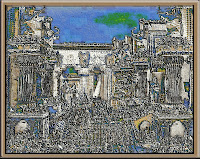 In a 2002 study, researchers at the University of Nijmegen examined the relationship between moral attitudes and religiosity. Individual educational attainment also affects moral attitudes, typically resulting in more liberal and tolerant attitudes. These results are nothing new because many studies have demonstrated moral rigidity in the religious and the less educated.
In a 2002 study, researchers at the University of Nijmegen examined the relationship between moral attitudes and religiosity. Individual educational attainment also affects moral attitudes, typically resulting in more liberal and tolerant attitudes. These results are nothing new because many studies have demonstrated moral rigidity in the religious and the less educated.
However, the researchers also observed variation in the moralism-religiosity relationship within different countries. They found that the correlation between individual religiosity and moral attitudes was stronger in the more religious countries compared to the more secularized countries. The liberalizing impact of education was stronger in more religiously heterogeneous countries compared to religiously homogeneous countries, and stronger in long-standing democracies compared to short- standing democracies. [s] When compared to other Western nations, including neighbouring Canada, religiosity and moral rigidity in the United States ranks alongside the developing nations. Contrary to its self-congratulatory hubris, the US has very little to brag about because its citizens display a level of ignorance that places it at the bottom of the Western intellectual totem pole.
When compared to other Western nations, including neighbouring Canada, religiosity and moral rigidity in the United States ranks alongside the developing nations. Contrary to its self-congratulatory hubris, the US has very little to brag about because its citizens display a level of ignorance that places it at the bottom of the Western intellectual totem pole.
The image at top left is from David Wark Griffith's 1916 movie "Intolerance". In ironic contrast, the image at right is a scene from Griffith's 1915 movie "The Birth of a Nation", which epitomizes American intolerance toward blacks and glorifies the Ku Klux Klan. I doubt that Griffith ever saw the irony.
No comments:
Post a Comment